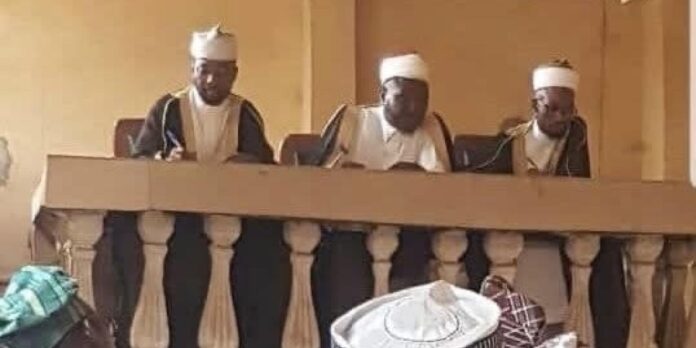The Muslim Rights Concern (MURIC) has disclosed that Shariah arbitration panels exist in all six states of Nigeria’s Southwest region. However, these panels, which operate in Lagos, Ogun, Oyo, Osun, Ekiti, and Ondo states, lack the authority to enforce their decisions, according to the group’s Executive Director, Professor Ishaq Akintola.
In an exclusive interview, Akintola clarified the purpose and limitations of these panels, debunking widespread misinformation about their operations. He emphasized that the panels deal strictly with civil matters and operate on a voluntary basis, making their judgments non-binding.
“Not Criminal Courts”
Akintola expressed concern over what he described as “blatant lies” being spread about the Shariah panels. Addressing fears that these panels could impose Islamic punishments or interfere in criminal cases, he said, “People are spreading blatant lies. The Shariah panels are for civil matters. They cannot go into criminal matters. The panels also have no power of enforcement. Their judgment cannot be enforced. It is voluntary.”
To illustrate their limitations, Akintola compared the panels to committees found in religious organizations. “Even in churches, there are committees for finance, logistics, and planning,” he said. “If the planning committee imposes a financial contribution for an event, can they arrest any church member who doesn’t pay? No, they can’t. Similarly, the Shariah panels have no power to arrest any Muslim who refuses to comply with their decisions.”
Functioning Like Committees
Shariah arbitration panels in the Southwest serve as alternative dispute resolution bodies for civil cases, such as marital disputes and property disagreements, among Muslims. However, their jurisdiction is strictly limited, and their decisions rely on voluntary compliance.
Akintola emphasized that these panels are neither courts of law nor substitutes for the judiciary. “They are just committees. Those who choose to go there do so voluntarily,” he explained. “The panels cannot seize property, send anyone to jail, or impose any form of punishment.”
Background on Shariah Panels
The concept of Shariah arbitration panels in Nigeria is rooted in the constitutional freedom of religion, which allows citizens to resolve disputes according to their faith. This practice is not unique to Islam; various Christian denominations also use internal committees to address disputes within their congregations.
In Ekiti State, for example, the Independent Shariah Arbitration Panel recently held its first public sitting at the Oja Oba Central Mosque in Ado-Ekiti. The panel’s activities are part of broader efforts to provide Muslims with culturally and religiously relevant alternatives for resolving civil disputes.
Public Perception and Concerns
Despite their limited scope, Shariah panels often face criticism from those who fear they may serve as a gateway for the imposition of Islamic law in a pluralistic society like Nigeria. Akintola dismissed these fears as unfounded and attributed them to a lack of understanding.
He explained that the panels are modeled after similar systems in other parts of the world, where religious arbitration bodies operate within the framework of the law. “The panels exist to provide a platform for Muslims who wish to settle disputes amicably without resorting to conventional courts,” he said.
Misconceptions Persist
Akintola’s statements come amidst ongoing debates about the role of religion in Nigeria’s legal system. Critics often raise concerns about the potential for religious arbitration to undermine the secular nature of the state. However, proponents argue that these panels enhance access to justice for those who might otherwise feel alienated by the formal court system.
“Shariah panels are not a threat to Nigeria’s legal system,” Akintola insisted. “They are simply an alternative for those who wish to resolve their issues within a religious context. It is entirely voluntary, and no one is compelled to abide by their decisions.”
Contextualizing the Debate
Nigeria’s constitution guarantees freedom of religion and allows for the establishment of religious arbitration bodies, provided they do not contravene existing laws. Shariah law is most prominent in northern Nigeria, where 12 states have adopted it as part of their legal systems. However, in the Southwest, Shariah panels are limited to arbitration and cannot function as courts.
This distinction is critical in dispelling fears of overreach. While northern states may implement Shariah law more comprehensively, the panels in the Southwest remain confined to voluntary civil arbitration.
Calls for Understanding
Akintola called on Nigerians to approach the issue with an open mind and resist the urge to politicize religious matters. He urged the public to recognize the panels’ limitations and the voluntary nature of their operations.
“Let us not create unnecessary tension where there is none,” he said. “The Shariah panels are simply a service for those who want it. They are not binding on anyone, and they do not replace the judiciary.”

